I’d like to present an idea that has been going around my head since it became clear that the Deepwater Horizon catastrophe wasn’t “just” another oil spill:
If we are looking to achieve true and lasting environmental justice and restoration, it would behoove us to set up something along the lines of an ecological Truth and Reconciliation Commission for the Gulf.
Unlike any other TRC ever attempted, it would be the first of its kind to represent non-human victims, such as fish and birds killed and defiled by swaths of crude oil.
Here are my thoughts behind the idea.
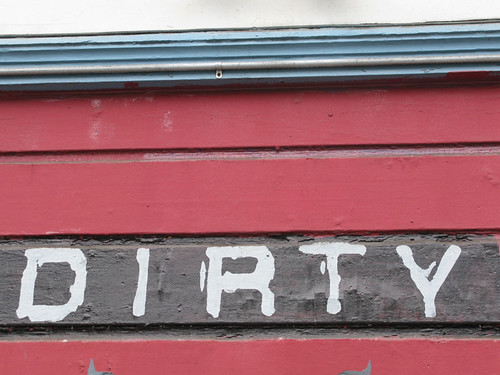 As an ominous oil slick is swallowing up the Gulf of Mexico and heart-wrenching images of oil-drenched marine birds and mammals have brought the Deepwater Horizon catastrophe into full frontal public view, the next chapter in this creepy horror story is being written. After ten weeks of hoping that perhaps BP could plug the hole or at least there would be some sort of heroic cleanup effort that would keep the man-made underwater oil volcano from spreading its filthy gunk onshore, denial is no longer an option.
As an ominous oil slick is swallowing up the Gulf of Mexico and heart-wrenching images of oil-drenched marine birds and mammals have brought the Deepwater Horizon catastrophe into full frontal public view, the next chapter in this creepy horror story is being written. After ten weeks of hoping that perhaps BP could plug the hole or at least there would be some sort of heroic cleanup effort that would keep the man-made underwater oil volcano from spreading its filthy gunk onshore, denial is no longer an option.
Of course, BP has made it very easy for us to move into the anger phase of the grieving process. From CEO Tony Hayward’s now infamous “I’d like my life back” to revelations that the oil industry has been spending their record profits on technology to drill five miles below the ocean while cutting corners on thirty-year old safety and cleanup procedures, ignoring or downplaying the disaster is no longer an option. Whether the relief wells will work or not, the reckoning for this massive gusher has just begun.
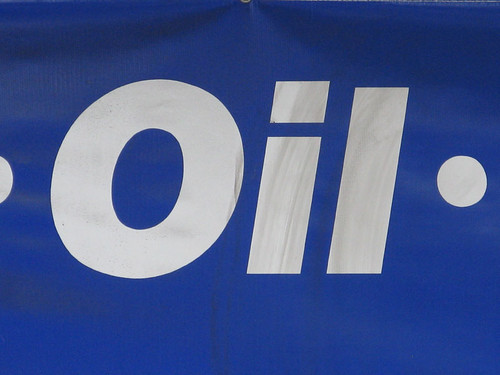 While I don’t have any sympathies for Mr. Hayward or anyone else at BP or the US Minerals Management Service who may have been in a position of preventing this catastrophe, and while those immediately responsible for the disaster should be held accountable and pay the full damages, no amount of reparations or accountability will ever right this wrong. Look no further than BP’s Regional Oil Spill Response Plan for the Gulf of Mexico advising spokespersons “never to assure the public that property, ecology, or anything else will be restored to normal” to understand the irreversible nature of the situation.
While I don’t have any sympathies for Mr. Hayward or anyone else at BP or the US Minerals Management Service who may have been in a position of preventing this catastrophe, and while those immediately responsible for the disaster should be held accountable and pay the full damages, no amount of reparations or accountability will ever right this wrong. Look no further than BP’s Regional Oil Spill Response Plan for the Gulf of Mexico advising spokespersons “never to assure the public that property, ecology, or anything else will be restored to normal” to understand the irreversible nature of the situation.
Like some of the worst atrocities committed in our illustrious human history, there is no punishment that can heal the deeper wounds inflicted by this ecocidal calamity. Think about it: When has retribution ever worked to address the root causes of an injustice? Does the death penalty reduce crime and create a more civil society? Does the war on drugs stem demand or heal a junkie’s broken spirit? Even if BP went belly-up like so many of the Gulf’s marine residents, it would mean little more than a different corporate logo flying over the same old wells. If our collective solution to this problem remains centered solely on “making heads roll” we should not expect the new heads to be any wiser than the old ones.
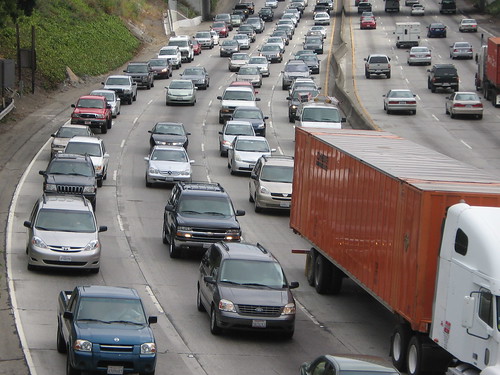 In our heart of hearts I think we all understand that there’s more to the story than just the bad guys being evil. Between the storms of shock and rage there have been shimmers of self-reflection pointing toward an unprecedented collective readiness to deal with the root cause of the problem. Google the words “BP spill” and “oil addiction” and you get 635,000 results. Safe for the most rabid “drill baby drill” types, people of all political stripes are realizing that to clean up this incredible mess we’re leaving on the planet we have to start cleaning up our own kitchens first.
In our heart of hearts I think we all understand that there’s more to the story than just the bad guys being evil. Between the storms of shock and rage there have been shimmers of self-reflection pointing toward an unprecedented collective readiness to deal with the root cause of the problem. Google the words “BP spill” and “oil addiction” and you get 635,000 results. Safe for the most rabid “drill baby drill” types, people of all political stripes are realizing that to clean up this incredible mess we’re leaving on the planet we have to start cleaning up our own kitchens first.
Perhaps it’s a blessing in disguise that the gusher is not letting up, that neither BP nor the Government — and by extension, the 24-hour news cycle — is able to put a lid on it. We’re made to look into the ugly face of over-consumption and under-regulation, and nobody is able to take away the mirror. And while the blame game is understandable during the shock and anger phase, this crisis presents an infinitely more constructive opportunity to get to the core of the problem and change the game’s trajectory altogether. For if we’re serious not only about plugging this gusher but coming to an understanding of what led us to drill for oil a mile below the ocean in the first place, we’d be well advised to create a Deepwater Horizon Truth and Reconciliation Commission.
An ecological Truth and Reconciliation Commission would be unlike any other TRC ever attempted, both in scope and complexity. For example, it would be the first of its kind to represent non-human victims, such as fish and birds killed and defiled by swaths of crude oil. 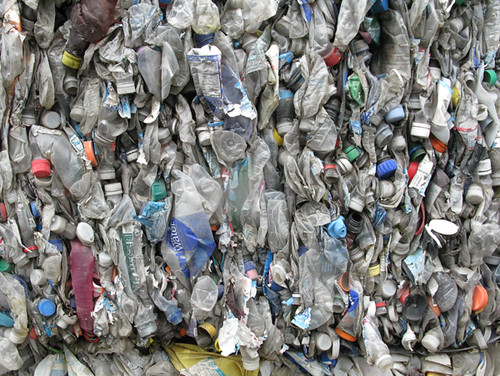 Furthermore, while there would be one set of clear and obvious victims (marine wildlife) and perpetrators (BP executives), most parties represented in this TRC would find themselves somewhere in the gray areas between innocent and guilty: Gulf residents whose livelihoods depend on clean water and oil rigs. Government officials past and present who talk about environmental protection but fail to regulate and hold polluters accountable. Last but not least, all of us whose hearts are broken by the devastation in the Gulf while our petrochemically enhanced lives continue unabated.
Furthermore, while there would be one set of clear and obvious victims (marine wildlife) and perpetrators (BP executives), most parties represented in this TRC would find themselves somewhere in the gray areas between innocent and guilty: Gulf residents whose livelihoods depend on clean water and oil rigs. Government officials past and present who talk about environmental protection but fail to regulate and hold polluters accountable. Last but not least, all of us whose hearts are broken by the devastation in the Gulf while our petrochemically enhanced lives continue unabated.
Restorative justice as it would be sought by an ecological TRC would not mean letting BP off the hook. But to achieve true and lasting restoration we must come to terms with the reality that BP is only one link in a destructive chain spanning the entire globe with a penchant for wasteful habits and short-term profits. If our goal is indeed to avoid future oily reckonings, we have to address the underlying ecological imbalances our love affair with the black gold has wrought. Let’s summon the courage to face a painful yet liberating truth: We’ve been living above the means allotted to us by the earth’s fragile ecosystem, and our over-reliance on fossil fuels is making our planet pop out of its seams.
There is legitimate concern that an ecological TRC, just as a human rights TRC, could potentially allow crimes to go unpunished, in this case creating impunity for polluters like BP. However, there is good reason to believe otherwise. For one, the most famous and arguably most successful TRC in history — assembled in South Africa in the aftermath of Apartheid — granted amnesty to only about ten percent of all petitioners. Moreover, it’s already been established that BP bears responsibility for the immediate damage from the spill, and the company has agreed to a $20 billion fund for gulf oil spill claims.
Which brings us to the most important part in this process: Reconciliation.
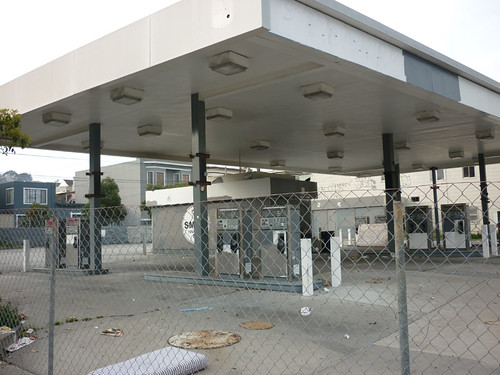 We can no longer afford to kick the environmental can down the road and hope for the best, like we have in the past. From climate change to loss of bio-diversity, from peak oil to soil depletion, our spills, explosions, droughts and garbage patches aren’t isolated events but part of an interconnected web of cause and effect. For meaningful change and true reconciliation to occur, the Deepwater Horizon TRC would have to include a broad cross-section of society, from lawmakers and business leaders to manufacturers and consumers, willing to be stakeholders in the healing process.
We can no longer afford to kick the environmental can down the road and hope for the best, like we have in the past. From climate change to loss of bio-diversity, from peak oil to soil depletion, our spills, explosions, droughts and garbage patches aren’t isolated events but part of an interconnected web of cause and effect. For meaningful change and true reconciliation to occur, the Deepwater Horizon TRC would have to include a broad cross-section of society, from lawmakers and business leaders to manufacturers and consumers, willing to be stakeholders in the healing process.
A Deepwater Horizon TRC would not just be a symbolic feel-good proposition but hold potential for real life action and change. It would entail a comprehensive review of existing dynamics that are at the core of our ravenous thirst for fossil fuels, ranging from poor city planning to an economic system based on perpetual growth to the marketing of mindless consumption. Rooted in the premise that we’re all connected and that ultimately no one can prosper on a ravaged Earth, participants who might otherwise be suspicious of each others‘ motivations would be invited to work together on crafting solutions to truly go beyond petroleum. From comprehensive legislation to curb emissions and investments in clean sources of energy to car-free urban design and ways to simplify our daily lives, this commission could accomplish infinitely more than plugging a hole and booming a sea of oil: a shift in consciousness about how we want to live together on this planet we call home.
You may say I’m a dreamer. But I’m not the only one. Just ask Nelson Mandela and Archbishop Desmond Tutu.








Hi Sven,
I read your hopeful and wise perspective on the ecological TRC, and the link to our petrochemically-enhanced lives. I had NO idea that everything we use–even medications–is made from oil.
I tend toward optimism, but in trying to see the bigger ‘oil’ picture, in my mind’s eye, I see a black octopus with hundreds of tentacles buried deep into all that is human, everything created to expedite mind-boggling profits. An octopus’ tentacles are very strong.
Do the pirates care about any of this, at all? Do the pirates have to agree to a TRC, or does the government mandate their participation? How does it work?
Yours is an inspiring idea.
Pam
Ultimately, we don’t know whether we can actually “save” the planet, but I think on a more cosmic/spiritual level it’s important to be as kind and loving and authentic in our endeavors as possible. There are more dimensions to these challenges than just political ones, and I think for those of us who don’t always win the political battles but act from a deep and caring place it’s important to remember that. It’s clear that corporations don’t change their behavior by being asked politely, so there definitely needs to be deterrence. If BP goes bankrupt it might be a deterrent for any other oil company who steps in to be better stewards, not because they care but out of a sense of self-preservation. However, the oil companies are only one piece of the puzzle, and in a sense that’s a good thing: It gives all of us an opportunity to reevaluate the system we live in, the many dynamics that have created this ecological imbalance, and our own role in it.
Another powerful piece of being truthful and reconciling has to do with every single cognizant citizen coming to terms with their participation in our collective “petrochemically enhanced lives.” We each need to take responsibility to be truthful about how our habits and proclivities impact people and things beyond ourselves, and if we wish to make any change, that we have to reconcile our desires be realistic about how and what we consume. This, for the sake of all beings – those who can and cannot be present and speak up for themselves – at what would be a powerful TRC.
words of wisdom. It takes all of us to contribute to this historic task of slowing down.